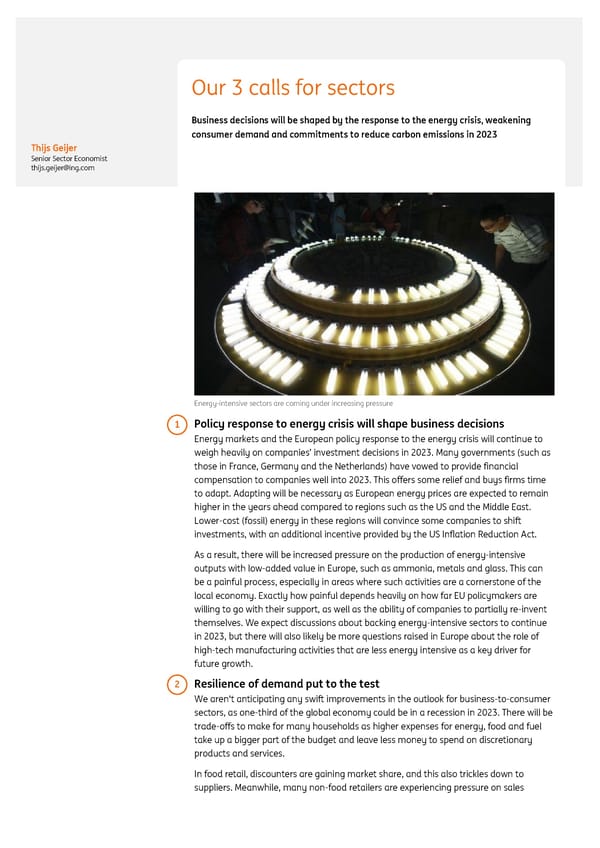ING global economic outlook 2023 December 2022 Our 3 calls for sectors Business decisions will be shaped by the response to the energy crisis, weakening consumer demand and commitments to reduce carbon emissions in 2023 Thijs Geijer Senior Sector Economist [email protected] Energy-intensive sectors are coming under increasing pressure 1 Policy response to energy crisis will shape business decisions Energy markets and the European policy response to the energy crisis will continue to weigh heavily on companies’ investment decisions in 2023. Many governments (such as those in France, Germany and the Netherlands) have vowed to provide financial compensation to companies well into 2023. This offers some relief and buys firms time to adapt. Adapting will be necessary as European energy prices are expected to remain higher in the years ahead compared to regions such as the US and the Middle East. Lower-cost (fossil) energy in these regions will convince some companies to shift investments, with an additional incentive provided by the US Inflation Reduction Act. As a result, there will be increased pressure on the production of energy-intensive outputs with low-added value in Europe, such as ammonia, metals and glass. This can be a painful process, especially in areas where such activities are a cornerstone of the local economy. Exactly how painful depends heavily on how far EU policymakers are willing to go with their support, as well as the ability of companies to partially re-invent themselves. We expect discussions about backing energy-intensive sectors to continue in 2023, but there will also likely be more questions raised in Europe about the role of high-tech manufacturing activities that are less energy intensive as a key driver for future growth. 2 Resilience of demand put to the test We aren't anticipating any swift improvements in the outlook for business-to-consumer sectors, as one-third of the global economy could be in a recession in 2023. There will be trade-offs to make for many households as higher expenses for energy, food and fuel take up a bigger part of the budget and leave less money to spend on discretionary products and services. In food retail, discounters are gaining market share, and this also trickles down to suppliers. Meanwhile, many non-food retailers are experiencing pressure on sales
 ING Global Economic Outlook 2023 Page 18 Page 20
ING Global Economic Outlook 2023 Page 18 Page 20